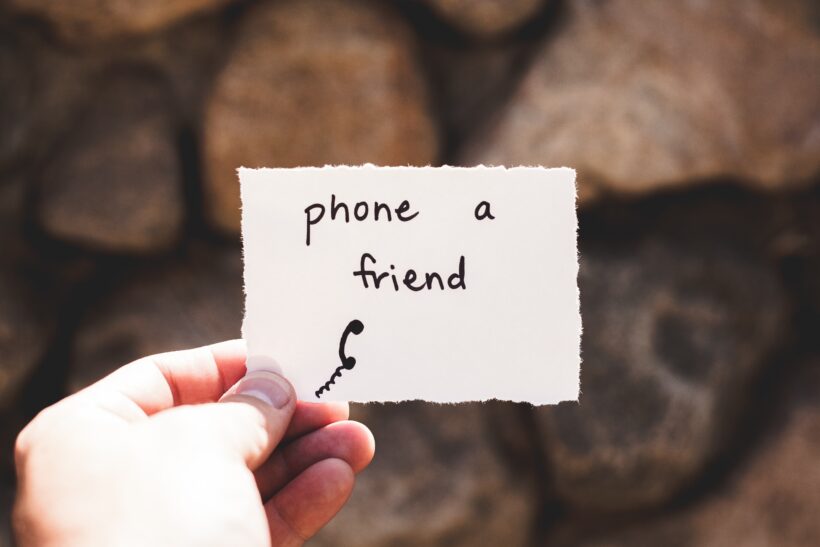First write a bad college essay draft to write a great essay I spend a lot of my time helping students unfreeze, and accept that if they first write a “bad” college essay draft, it might be THE most important step to a great draft. This blog came from a bunch of “you can write your essay” pep talks I gave to students over the past few weeks (and years!). ** It’s very paralyzing if you think you have to have a finished product before you even really started your college essay!** Most students don’t know how to write a narrative essay– I didn’t either, back when. But fretting about a lack of a skill never taught it to you. If it did, we’d all be amazing at things we never tried, but fretted a lot about. :) In fact, anxiety about the essay is exactly what will stop you from writing a great personal essay. You need to understand, hack, and tap into– the organic writing process. What’s the solution? FLOW. (Too Impatient for a pep talk? Cut right to getting expert help writing your college essay draft HERE.) A few essential reminders about writing college essay DRAFTS BTW: Even though I use the term “bad” throughout, I’m just using the language my students use. We should NOT call it a “bad” draft! There is nothing good or bad about it! It’s just… a draft! You might not even know the best college essay topic before you start writing! The search for a great college essay topic and totally great essay is noble and important, even critical. However, in my experience, you often have to write into a topic idea before you can be sure if it will work well or not. This is true for the supplemental essays and the Common App essays. It’s also true for…basically all writing! What sounds like a good idea while scaffolding might be less evocative (as in: not work) in execution. THAT IS A NORMAL PART OF THE PROCESS. The order goes: bad draft, good draft, great draft (but it can take way way more than three attempts!). And the writing might Continue Reading …
Students
Core Traits? Text Your Bestie!
In college admissions essays, students are asked to identify their core traits, explicitly and implicitly. However, most teens I know don’t sit around thinking about this. Despite the myth that they are completely self-absorbed, I believe teens are often thinking about self relationally. For example, like my stepson, they might be spending their time in awe at human talent, watching people chase a wheel of cheese down a hill. (Go ahead, take a look.) It can feel really hard to dig in and identify personal descriptions, even armed with lists of adjectives or exploratory worksheets to help you choose. Not sure how to figure out what your core qualities are? Feeling kinda flat and regular? I’ll give you the secret trick to identifying personal characteristics for your college essay: Text your besties to ask them about your core traits! That’s right, do it now! I’ll wait… Choose 1-3 friends who you think know you best. People who really get you. Text them this: “Hey, what are the first three words that come to mind when you think of me? How would you describe me? No cursing: it’s for my college application!” Then wait. See what they say. Once they respond, read their words aloud. See how you feel when you read them. If they don’t text you back quickly enough, text them again: “U R RUINING MY COLLEGE ADMISSIONS PROSPECTS. PL REPLY.” (If they still don’t text you– bite it, and call them. Write down what they tell you, verbatim). You could also ask, “What is the best thing about being friends with me?”. When my stumped stepson tried this, his besties answered in about 5 seconds, eliminating many hours of agony while he tried to get started on his own. The words they chose for him were completely apt. He turned that frown upside down and started writing a supplement. Reflect on their responses about your core traits What did your friends say were some of your core traits? Consider: Does it feel true? Continue Reading …
Sample Common App Essay: Believe in Yourself Harder
Morgan's Sample Common App College Admissions Essay -- with my commentary Morgan's advice to applicants: "You've got to be vulnerable, or it's not going to work." Believe In Yourself Harder Your lowest point can be your turning point. I learned this in 10th grade when I told my mom about my reading problems. She didn’t believe me. Wasn’t she supposed to be my biggest supporter? I was scared. Were my feelings accurate or imagined? Was I just “a slow reader” or was it something else? Either way, I could not go on like this. I knew I hadn’t performed well on my first test of the year. When the grade was posted as 63, I was speechless, painfully holding back tears. My parents seemed furious (in reality, probably just confused). “Did you study?” I thought they’d be understanding, but “D” was a new game. I knew I’d have to work even harder to believe the affirmations I repeated daily, “I am smart, I am capable,” – reminders that my intelligence wasn’t determined by grades alone. Raised to have agency, one of my greatest fears is turning into someone who looks for pity or sees myself as a victim. To avoid this, I’d study 10+ hours for one test– unsustainable. Would overdrive improve my performance? My grades slipped; my anxiety climbed. As my education and future depended on my actions, I admitted to my advisor there was a problem, advocating for her to speak to my mom. This paid off: we learned I wasn’t “just” a slow reader, but there was a bigger problem that I received help to address. Aware there would be a day when I’d have to stand up for myself, I never imagined it would be at home. My parents had always encouraged positive self-talk, emphasizing the importance of feeling confident in our skin and having pride in our heritage. They taught us always to give 100% effort, never quit, and find paths forward. These beliefs were pivotal to the development of my self-esteem, my crown jewel. Now, when seemingly no one validated my perspective, I was forced to Continue Reading …
What the teens taught me on 9/11
TO mark the anniversary of 9/11, I'm not going to dispense college essay advice. I'm going to let the teens in this story speak for me. And to my teen writers and applicants, remember that how you reflect on your memories now will change over the years, and that we love you, and we need you to be you. What The Teens Taught Me As a First-Year Teacher on 9/11/01 When I worked in a prestigious NYC private school as a Latin teacher, my first hour of my first day teaching, as a total newbie, was September 11th 2001. The Sept 11th. I was 21 years old, barely out of college, a mere four years older than my oldest students, at the same school I had attended 6th-12th grades. I had been a teacher officially for all of 10 minutes when the first plane hit. That bright morning, the workmen on the roof across the street went berserk, shouting and cursing fantastically and pointing at something our view obstructed. My classroom was on the 9th floor, and the high school students ran to the window excitedly to look for the cause of the fracas. ”No matter what is happening outside the window, what’s happening in here is always more important,” I chided them--because of course it doesn’t get more exciting than the opening spiel to a Latin Language course. They ignored me. I didn’t know then that the ending of verbs would not be the most important thing, or that certain verbs--crashed--could grind everything, including our world as we understood it, to a halt. Continue Reading …
The Secret of Youth-Writing Prompt
What is the secret of youth? The secret of youth is the subtext of many commercials, crappy diet plans, and plastic surgeries-- none of which I recommend pursuing. (But you know what I will recommend? Writing!). The secret of youth is also something we discover when we get space from our fossilized concepts of how things are. Teenagers have the hard and sometimes gratifying job of shaking us more grown people out of our comfy delusions. But little kids can do that too, just by being themselves, engaging with the world at face value. Continue Reading …
Good news on Winning College Essay–Julian Jimenez, Princeton
Julian Jimenez's winning college essay begins, "Here comes Satanás... Behold his fiery, mischievous, defiant glory." I know: a risk. Just the kind that apparently makes admissions teams sit up and then salute. I had worked closely with Julian on his main college essay and supplements--if they don't take him, they're confused, I'd think. In admissions, though, criteria are complex. Excellent writing stands out, but it doesn't stand alone. Though the tone was often playful, I knew he wasn't playing. So when I saw his long list of impressive acceptances in the email, I was not surprised, but my heart did crack open. You'll remember my name Julian was dubbed "Satanas" as a child; Satan may have a really bad reputation in many circles, but we know what that figure does well is convince others to do things. In this case, his power of language (y'all are going to know my name!) held sway over admissions officers. They remembered his name and they put it on their BRING IT list. Committed to Princeton Julian wrote: "I'm proud to tell you that I have committed to Princeton! I actually got into roughly 90% of my top choices including Dartmouth, Columbia, USC, UCLA, Berkeley, Swarthmore, University of Notre Dame, UCSD and UCSB , and a few others." Now, if you follow my admissions essay work, you know I am not an Ivy Preacher nor swayed by school branding that's not backed up by substance and stellar education. Any school must be a potential a fit for that applicant. (Because, no, the Illustrious Ivies are not a fit for all, nor is their egregious price tag). But in this case, the enormity of the nations top schools saying YES YES YES CHOOSE US speaks volumes about Julian's renovation of his entire life, and his family's life and prospects. His was the kind of family this country claims currently to not want within our borders. Voice to and through the struggle Most of us have no idea what some students struggle through to get even a decent Continue Reading …





